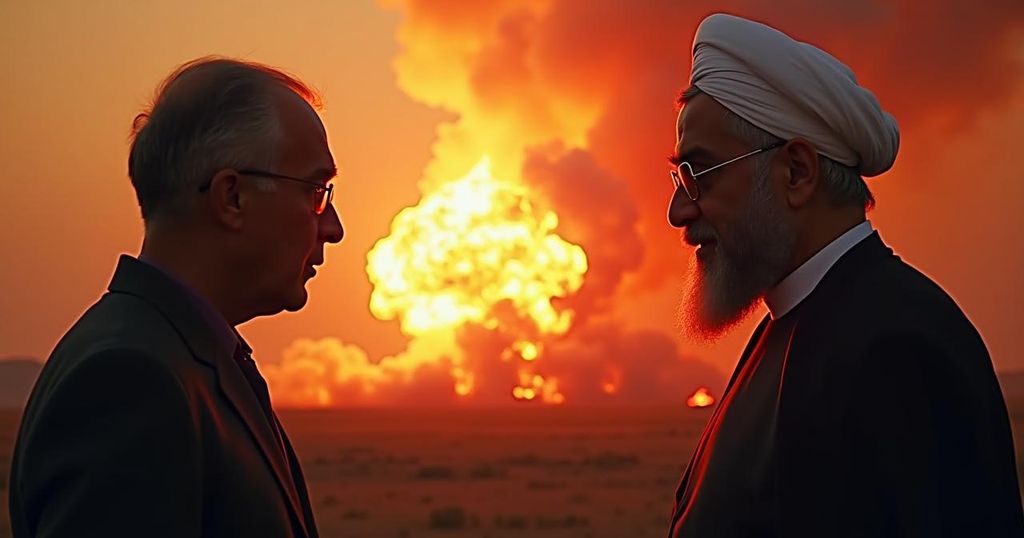Escalating Hostilities in the Middle East: Israel and Iran Exchange Threats
Israel’s military operations in Lebanon against Hezbollah have intensified following the killing of the group’s leader, Hassan Nasrallah. Prime Minister Netanyahu has warned Iran of possible retaliation, while Iran’s Supreme Leader Khamenei has vowed that Nasrallah’s death will not go unpunished, signaling a potential escalation of conflict in the region.
Tensions in the Middle East are escalating as Israel continues its military operations against Hezbollah in Lebanon, following the assassination of the militant group’s leader, Hassan Nasrallah. The Israeli government, led by Prime Minister Benjamin Netanyahu, has explicitly warned Iran—Hezbollah’s principal supporter—that it too may become a target of Israeli forces. In a strong retort, Iran’s Supreme Leader, Ayatollah Ali Khamenei, vowed that the repercussions of Nasrallah’s killing would be severe, asserting that it would “not go unavenged.” Netanyahu, in a statement made late Saturday, emphasized Israel’s far-reaching capabilities, declaring, “There is nowhere in Iran or the Middle East beyond the reach of the long arm of Israel, and today you know how true that is.” The combative rhetoric from both sides illustrates a dangerous escalation in hostilities, raising concerns of broader regional conflict.
The Middle East has been a historical battleground for various factions, primarily centered around religious and political disputes. The recent assassination of Hassan Nasrallah marks a significant turn in the ongoing conflicts involving Israel, Hezbollah, and Iran. Hezbollah, a Lebanese militant group and political party, has long been a proxy for Iranian influence in the region, complicating the already volatile landscape. The Israeli government’s continued military actions against such groups reflect a longstanding strategy to curb Iranian influence and terror operations. The exchange of threats between Israel and Iran highlights an enduring rivalry that could provoke wider conflict and destabilization in the region.
In conclusion, the current situation in the Middle East reflects an alarming increase in hostilities between Israel and Iran, exacerbated by the recent targeting of Hezbollah’s leader. Both nations have exchanged serious threats, with Israel asserting its ability to strike anywhere in the region and Iran promising retaliation for Nasrallah’s death. Given the historical animosities and alliances in this geopolitical context, the potential for further escalation remains a critical concern for peace and stability in the region.
Original Source: www.politico.eu




Post Comment